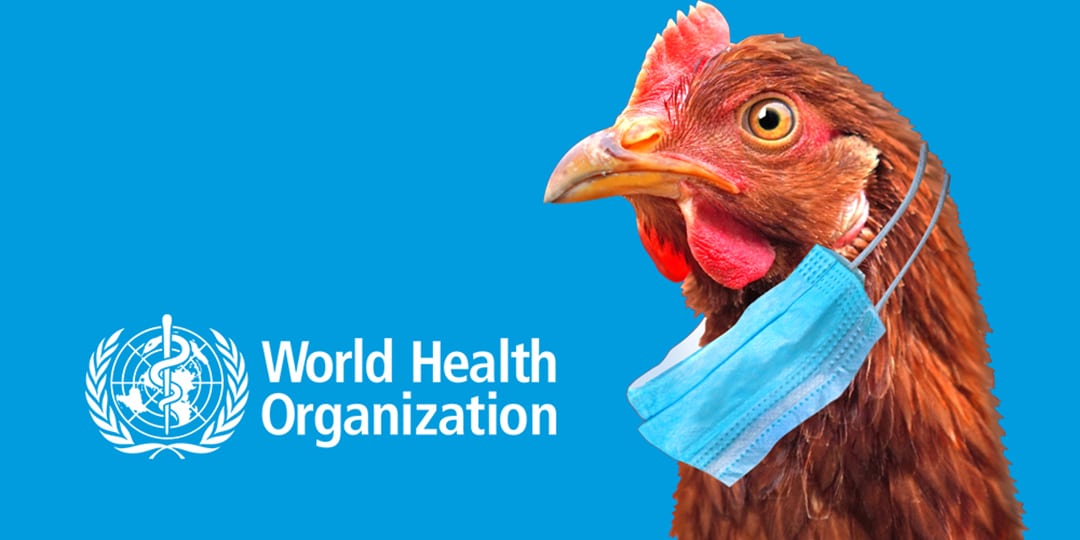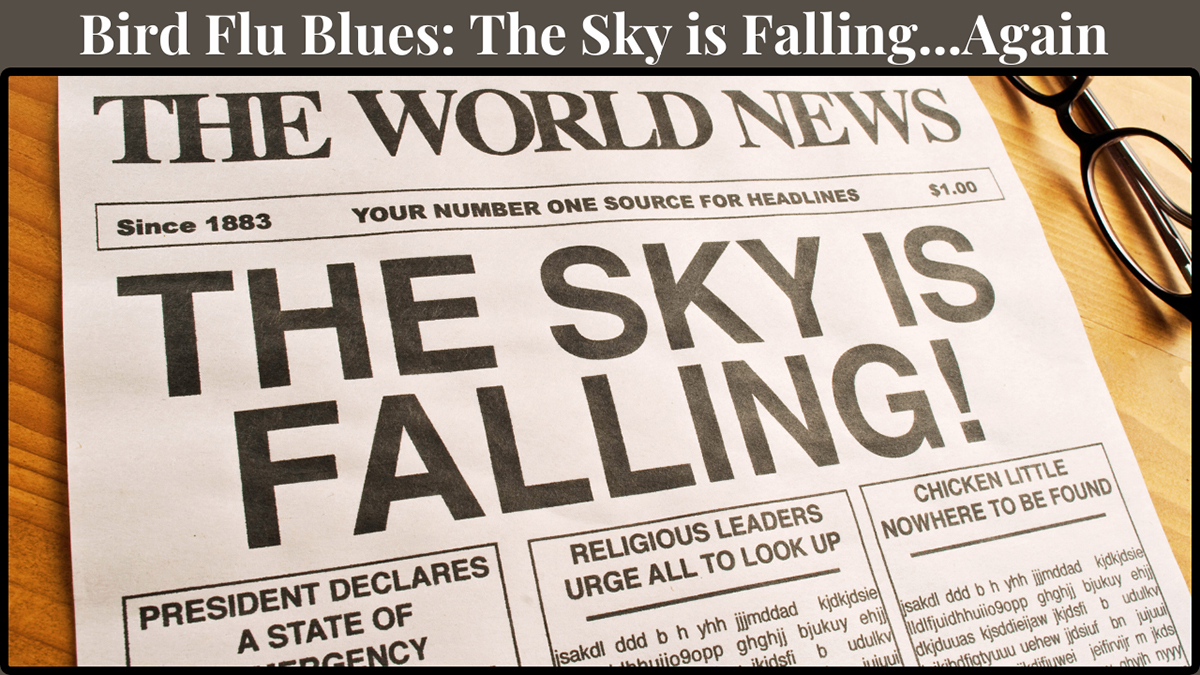

Are We Inching Towards an Avian Flu Pandemic?
| Aug 9, 2024
THE TOPLINE
- Recent steps by US health officials and the WHO to prepare for future pandemics could lead to increased control over public health and potential restrictions on personal freedoms.
- There are concerns that the response to H5N1 avian flu will build on the COVID-19 response, leading to excessive measures and unnecessary restrictions, especially given the uncertainty about the virus’s threat level.
- There is strong opposition to the WHO’s proposed ‘pandemic treaty’ and amendments to the International Health Regulations, as they could grant excessive power to the WHO in its declaration of a pandemic, giving national authorities justification to enforce health mandates.
Are you willing to give up your freedom to prevent a ‘pandemic’ that may pose little risk to the vast majority of Americans?
US health officials recently took a step that prepares the way for the next pandemic—or, in the World Health Organization’s (WHO) lingo, a “public health emergency of international concern,” or PHEIC. This will renew the attacks on your freedoms experienced during the COVID pandemic, but you can bet that health authorities (both national and global) will have learned from experience and be even more efficient at ensuring compliance with health mandates. This is why we have to defeat the dual processes going on at the WHO that further entrench the authority to institute freedom-killing, top-down public health and medical interventions.
The US Health Secretary, Xavier Becerra, recently declared that certain flu viruses, particularly H5N1 avian (bird) flu, pose a “significant potential for a public health emergency.” The declaration allows HHS to issue emergency use authorizations for unapproved drugs, devices, or products. The declaration specifies that “circumstances exist justifying the authorization of emergency use of in vitro diagnostics for detection of avian influenza A (H7N9) virus.”
You can probably see where this is going. Our colleagues at ANH International explained the problems with relying on PCR tests during the COVID pandemic. The false positive paradox, which can be explained by Bayes theorem, dictates that when the prevalence of a disease is low, false positive rates will be high, sometimes accounting for over 95% of test results. So during the last pandemic many people who were either asymptomatic or not infected at all tested positive, often triggering self-isolation requirements while also driving demand for the COVID vaccination. A future testing regime for H5N1 avian flu, especially if prevalence in humans is very low, could generate even higher levels of false positives, unnecessary vaccination, and unfounded restrictions on freedom.
H5N1 avian influenza, aka ‘bird flu’, is a highly pathogenic viral infection that primarily affects birds but can also infect humans and other animals. The recent spread of the virus among dairy cows and the discovery of genetic traces of the virus in 1 in 5 milk samples have sparked concerns that the virus may become more transmissible to humans, with the possibility of subsequent human-to-human transmission—a prerequisite to the declaration of a PHEIC by the WHO, that does not necessarily require there to be a high risk to public health.
The virus was first identified in humans in 1997 in Hong Kong, and the CDC currently describes infections in bird populations as “widespread”, in poultry flocks and mammals as “sporadic”, with zero evidence of human-to-human transmission and “low” public health risk. There has only been one suspected transmission from a mammal to a human, that being in April 2024, in a dairy worker. The case was mild and presented mainly as conjunctivitis. Birds can also transmit the virus to humans. Globally, since 1996, 889 cases have been recorded in humans—most cases being in Asia, and while more than half have been recorded as fatal there is no available information available on underlying conditions. Most of the sick were infected on the job working with poultry.

Here we see the operation of the ‘Safety First’ ideology at full tilt. The threat posed by bird flu at this moment is purely theoretical, yet the fear mongering is gaining momentum. Some health officials have started calling for preventive actions against the spread of bird flu, emphasizing the importance of an early, centralized response. Our translation: get ready to give up your freedoms now so we can stop the spread of the virus before it even begins! By logical extension, anyone who disagrees or voices dissent will be seen as complicit in the rise of the next pandemic, so of course they must be silenced.
Then there’s the other, tried-and-tested version of fear mongering. FDA Commissioner Dr. Robert Califf recently testified before a Senate committee, warning that a bird flu pandemic could be “10 times worse than COVID-19,” with a mortality rate of up to 25 percent; we ask: “Which theoretical model did you rely on, Dr. Califf?” He added that the FDA needs to “Be ready and … do everything we can to limit the spread of the virus (emphasis added).” Will that include forced isolation, travel restrictions, business closures, and mass vaccination with the a newly prepped, untested H5N1 mRNA product?
These are exactly the kinds of powers that the WHO has been seeking through the Pandemic ‘Treaty’ and the amendments to the International Health Regulations (IHR). If you recall, the World Health Assembly met in May to vote on these two documents. You can read our coverage here, but in short, a package of IHR amendments was passed, and governments now have a matter of months to reject them—no vote is required in Congress to accept the amendments.
Separately, no consensus was reached on the so-called ‘pandemic treaty’, so negotiations are continuing; a round of negotiations took place in July, and the next round will take place in September.
The fight is far from over. We have less than a year to get the US administration (whichever way it goes in November) to reject these amendments, and we must continue to oppose the ‘pandemic treaty’ as negotiations continue. If we fail to do so, governments and international bodies may have increased authority to declare a pandemic and impose restrictions on freedoms during that period.
Action Alert! Write to Congress and tell them to reject the IHR amendments approved at the 77th WHA meeting. Please send your message immediately.



![[UPDATED] And the Bird Flu just keeps on coming… Bird Flu](https://zero-sum.org/wp-content/uploads/2024/05/The-bird-Flu-BW.jpg)

0 Comments